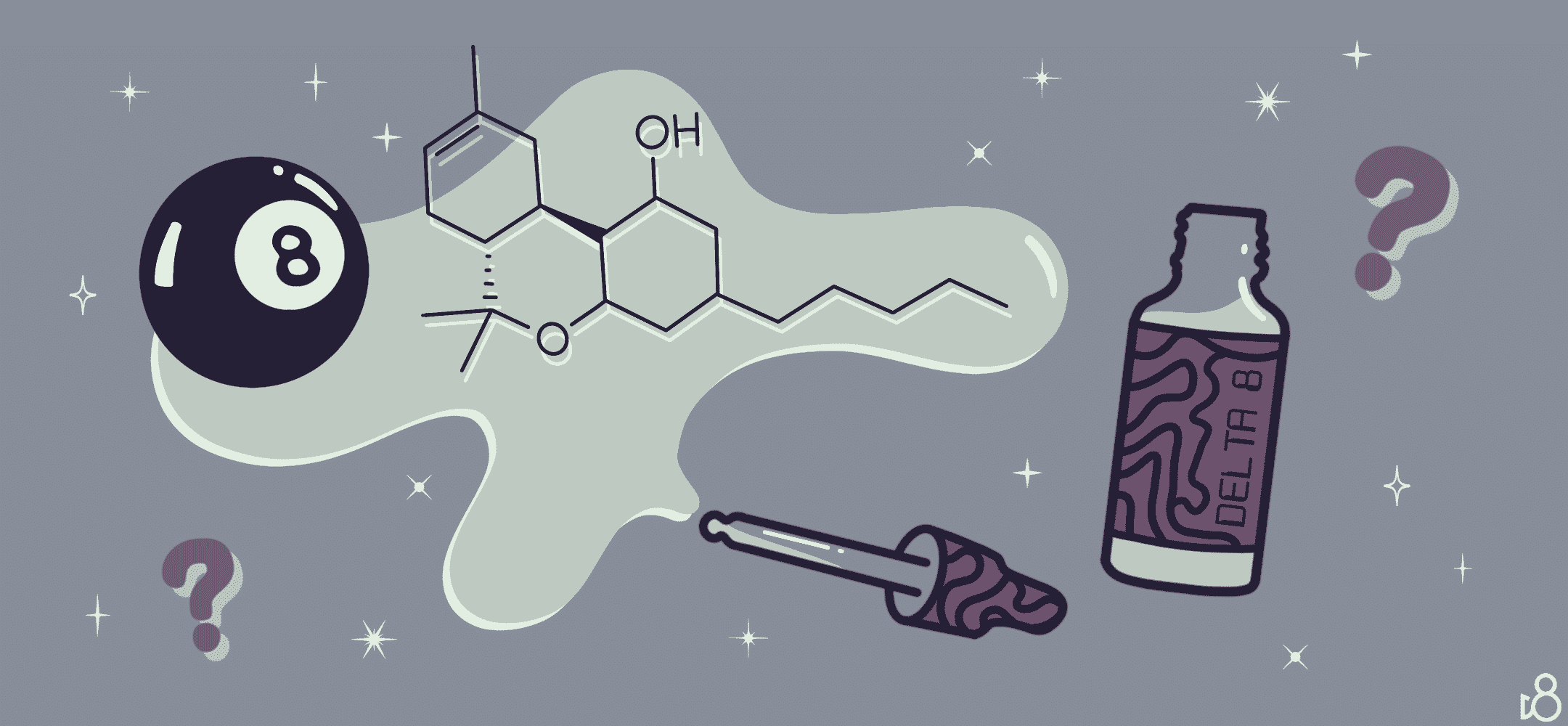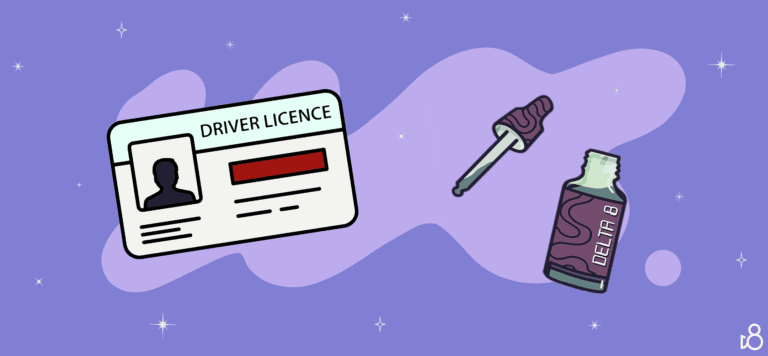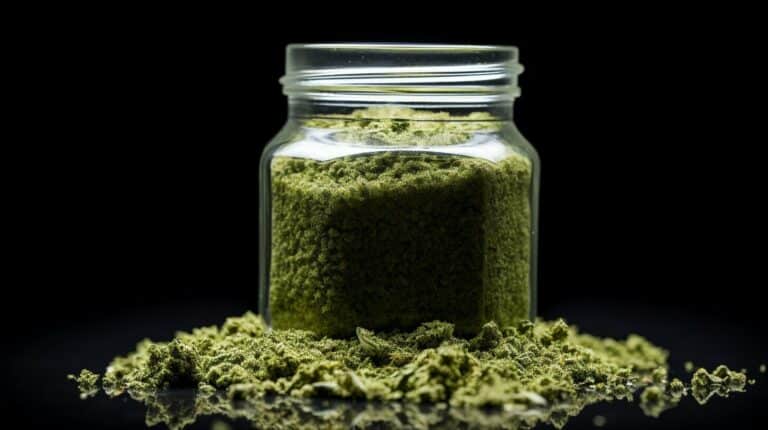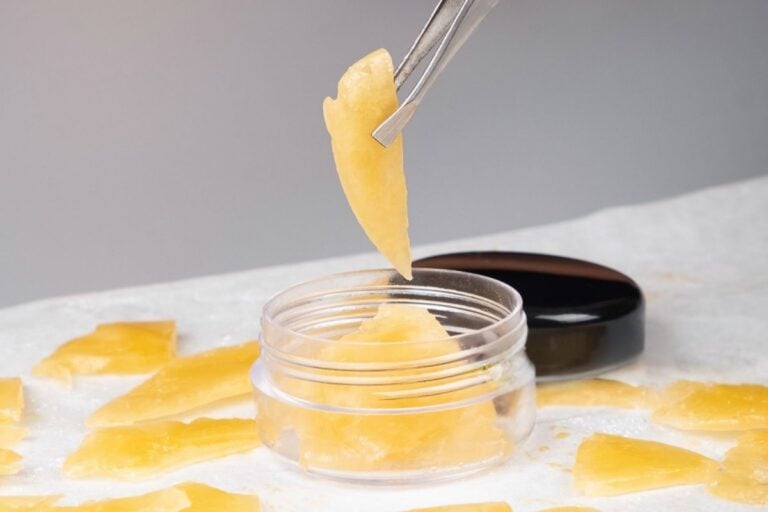What is Delta 8 THC: Understanding the Compound’s Effects and Legality
Delta 8 THC shines bright like a gem in the huge world of cannabis, standing out with features distinct from its famous relative, Delta 9 THC. While they come from the same green family, Delta 8 THC prefers quieter spots. What’s really cool about Delta 8 THC? It welcomes you with a softer hug, delivering a smoother and clearer journey without the buzz or nudging you into dreamland. Hang with us, and find out why Delta 8 THC could be the coolest discovery you make in the land of cannabis.
Understanding how Delta 8 THC interacts with your endocannabinoid system is critical to recognizing its potential effects. Like Delta 9 THC, it engages with the CB1 and CB2 receptors in the body, but the difference in the molecular structure of Delta 8 THC alters how it affects you. Research is still ongoing to unravel the full scope of its benefits and risks, and with its increasing availability, it’s important that you stay informed about what Delta 8 THC products you might encounter in the market.
Table of contents
- Understanding Delta-8 THC
- Legal Status of Delta-8 THC
- Delta-8 THC vs Other Cannabinoids
- Potential Effects and Benefits
- Safety and Risks
- Consumption Methods
- Product Quality and Regulation
- Research and Studies
- Market and Consumer Information
- Potential for Misuse and Public Health Considerations
- Future of Delta-8 THC
- Conclusion
The rise of Delta 8 THC has also led to legislative discussions and regulatory scrutiny. As with any cannabinoid, the legal status of Delta 8 THC can vary greatly depending on where you live, so it’s crucial to be aware of your local laws. With the compound’s popularity on the rise, understanding the production process, efficacy, and safety of Delta 8 THC is more important than ever.
Understanding Delta-8 THC
Delta-8 THC is a cannabinoid akin to delta-9 THC, the primary psychoactive component in cannabis, but it boasts a slightly different chemical structure that results in milder psychoactive effects. Here you’ll learn about its chemical makeup and how it’s produced.
Chemical Structure
Delta-8 THC, or delta-8-tetrahydrocannabinol, is a molecular sibling of delta-9 THC. Its structure features a double bond on the eighth carbon chain, whereas delta-9 has this bond on the ninth carbon chain. This minor change significantly impacts how it interacts with your body’s endocannabinoid system, leading to its less potent effects compared to traditional THC found in cannabis. Despite their similarities, Delta-8 THC is often described as a more stable and less psychoactive cannabinoid, offering a smoother experience for users.
Extraction and Synthesis
The production of Delta-8 THC typically involves the extraction from cannabis plants, which naturally contain low levels of this compound. Because these natural levels are not sufficient for commercial products, producers often convert CBD, another cannabis-derived cannabinoid, into Delta-8 THC through a chemical process. This synthetic transformation, while legal in some jurisdictions, falls into a regulatory gray area because it alters the chemical structure of a naturally occurring substance. Producers must use extreme care during this synthesis to ensure the final product’s purity and safety, considering the psychoactive nature of Delta-8 THC.
Legal Status of Delta-8 THC

Delta-8 THC’s legal status is complex, involving an interplay between federal legislation and state laws. You need to understand how the 2018 Farm Bill impacts its legality and how this interacts with various state regulations to navigate the legal landscape.
2018 Farm Bill Impact
The 2018 Farm Bill federally legalized hemp and its derivatives with a delta-9 THC concentration of not more than 0.3% on a dry weight basis. This law inadvertently created a loophole that allowed for the production and sale of Delta-8 THC, provided it is derived from hemp compliant with the bill. However, because Delta-8 is psychoactive, its legality remains in a gray area under federal law.
State vs Federal Regulations
Federal regulations are not the final word on the legality of Delta-8 THC; state laws vary considerably. Some states have explicitly legalized Delta-8, aligning with the 2018 Farm Bill. In contrast, others haven’t addressed it or have outright banned it, treating it similarly to delta-9 THC. You should review your state’s legislation to determine if Delta-8 is legal where you reside. Remember, these state laws can also influence the enforcement of federal law within their jurisdictions.
Delta-8 THC vs Other Cannabinoids

In comparing Delta-8 THC to other cannabinoids, you’ll notice it shares similarities and distinctions, especially when examined next to Delta-9 THC and CBD, the more commonly recognized compounds from the cannabis plant.
Delta-8 THC vs Delta-9 THC
Delta-8 THC is a minor cannabinoid naturally occurring in the cannabis plant but in far lower concentrations than Delta-9 THC. Chemically similar, both interact with your body’s endocannabinoid system but have different affinities for the CB1 and CB2 receptors, which lead to their differing effects. While Delta-9 THC is widely recognized for its potent psychoactive properties, Delta-8 is often referred to as its milder sibling, potentially offering a less intense euphoria and lower likelihood of anxiety or paranoia, a finding highlighted in a survey of Delta-8 users.
Delta-8 also stands out due to its legal status; it occupies a grey area due to variations in state and federal laws. For example, the rise and risk of delta-8 THC note how Delta-8 may circumvent some legislation due to the nuances of its sourcing and synthesis.
Delta-8 THC vs CBD
CBD, or Cannabidiol, is another primary constituent of the cannabis plant, but unlike Delta-8 and Delta-9 THC, it’s non-psychoactive. This attribute makes CBD a more appealing option for those seeking relief from conditions like anxiety, pain, and insomnia, without the “high” associated with THC. Different from Delta-8, CBD doesn’t bind as readily to the endocannabinoid receptors.
The effects and uses of CBD in medical treatment have been extensively documented, including in a consumer experiences study. CBD is federally legal in the United States if derived from hemp and under the legal threshold of 0.3% THC content, which is not the case for Delta-8 THC in all jurisdictions.
Potential Effects and Benefits
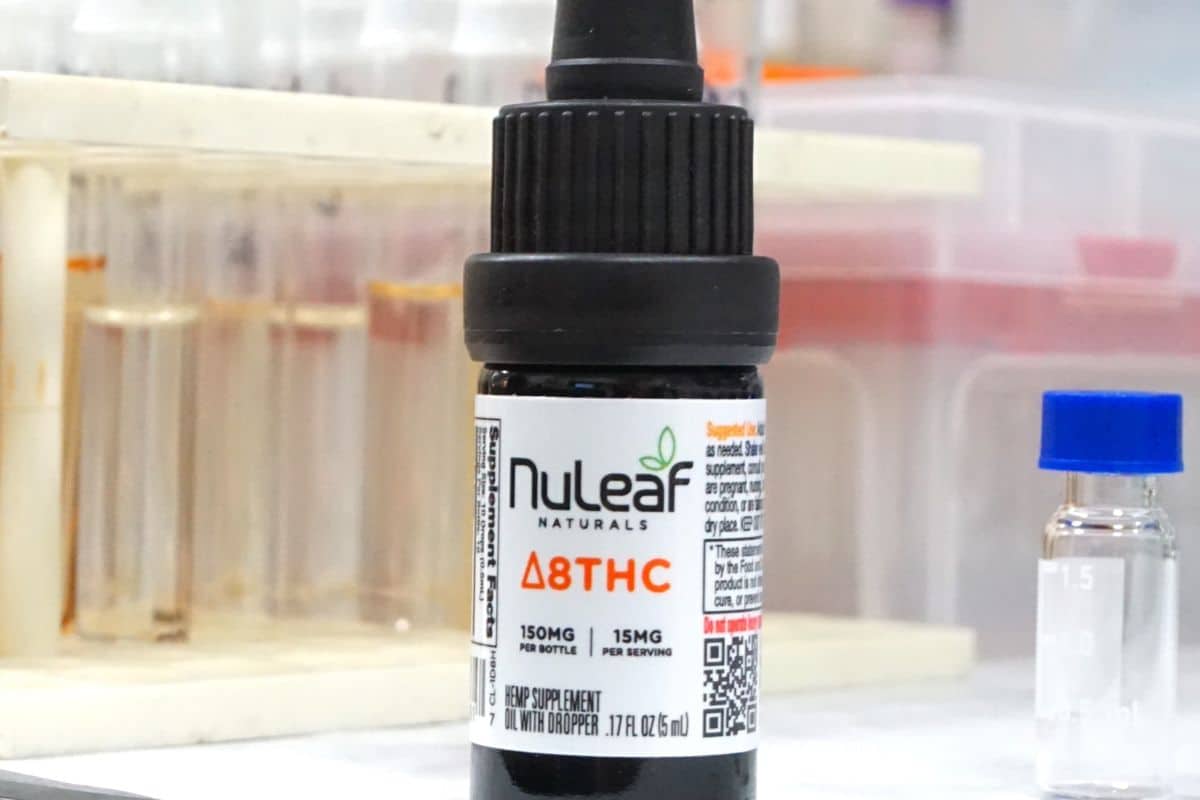
Delta-8 THC, often lauded for its milder psychoactive profile compared to Delta-9 THC, has drawn attention for its potential effects and benefits. You may experience both therapeutic advantages and a distinctive recreational experience.
Therapeutic Uses
Research suggests that Delta-8 THC can contribute to pain relief and may mitigate some forms of anxiety. Your body’s response to this cannabinoid can include mood enhancement, which can be a supportive factor in medical treatments. Moreover, studies indicate that Delta-8 THC might facilitate improved sleep patterns, aiding those with insomnia. It has also been linked to aiding appetite stimulation, potentially benefiting those with appetite loss.
Recreational Experience
For recreational use, the subtler euphoric effects of Delta-8 THC mean you can carry on with daily tasks without the intense high associated with Delta-9 THC. It may offer a calmer, more relaxing experience, potentially improving your overall mood without overwhelming your senses. Users often report a clear-headed euphoria, which can enhance social gatherings or creative pursuits.
Please bear in mind that the effects of Delta-8 THC can vary by individual and are subject to different legal status, so consult your local regulations.
Safety and Risks
When considering Delta-8 THC, it’s crucial to understand the potential for side effects and the specific concerns this compound poses for certain groups. Each individual may experience different reactions, and it’s important to stay informed on how it might affect your health and safety.
Side Effects
Delta-8 THC can manifest a variety of side effects that you should be aware of. Common reactions include dry mouth, memory inconsistencies, and feelings of paranoia. Some users report experiencing hallucinations, a loss of consciousness, or vomiting. While these side effects can be concerning, the compound’s overall safety profile is being evaluated as reports to poison control centers increase.
Concerns for Vulnerable Groups
Certain groups are more vulnerable to the risks associated with Delta-8 THC. Children and pets, for instance, may suffer more severe consequences if they are exposed to this compound. Additionally, accidental ingestion by children has led to a rise in adverse event reports. Because Delta-8 THC products are not always regulated, they can be easily mistaken for non-THC candies or snacks, which exacerbates the potential for unanticipated effects.
Consumption Methods
Delta-8 THC offers a variety of consumption methods to suit your preferences, each with its own onset time and duration of effects.
Inhalation
Vaping and smoking are two common inhalation methods for Delta-8 THC. With vaping, you can use devices like vape pens which heat a Delta-8 THC concentrate without combusting the material. This method delivers fast-acting effects as the Delta-8 THC is quickly absorbed through the lungs and into your bloodstream. Similarly, joints containing Delta-8 THC flower provide the traditional smoking experience, but like vaping, the effects are prompt and potent.
Edibles and Gummies
For a discreet and convenient option, edibles and gummies containing Delta-8 THC are available. These products are ingested and metabolized by your liver, which leads to a delayed onset of effects—typically within 1 to 2 hours. However, the impact is usually longer-lasting compared to inhalation. Gummies offer a precise dosage of Delta-8 THC, allowing you to monitor your intake carefully.
Product Quality and Regulation
Your understanding of Delta-8 Tetrahydrocannabinol (Delta-8 THC) products can significantly benefit from knowledge about current regulatory frameworks and quality concerns. This includes FDA oversight and the potential risks of contaminants.
FDA Oversight
The FDA has not approved over-the-counter Delta-8 THC products; therefore, their quality, safety, and potency can vary widely. You should be aware that product formulations lacking regulatory approval could lead to inconsistencies in product labeling and the advertised Delta-8 THC content. It is vital to assess products carefully, as they may not have undergone the rigorous testing processes typical for FDA-approved substances.
Contaminant Risks
Contaminants in Delta-8 THC products are a serious concern, especially if produced in unsanitary settings. You could be exposed to harmful substances such as heavy metals, pesticides, or residual solvents. Since these cannabis products are not uniformly regulated, contamination risk can arise from inadequate production methods. Always consider the source of your Delta-8 THC to minimize health risks.
Research and Studies

Delta-8 THC, a cannabinoid known for its similarities and differences with Delta-9 THC, has drawn significant research interest. You’ll find a growing body of scientific evidence that begins to elucidate its effects on the endocannabinoid system and its potential as a therapeutic alternative.
Scientific Findings
Research has indicated that Delta-8 THC interacts with the body’s endocannabinoid system, binding primarily to the CB1 receptors located in your brain. A study published in the journal “Cannabis and Cannabinoid Research” suggests that due to its more stable molecular structure, Delta-8 THC might offer some advantages over Delta-9 THC, such as a lower psychoactive potency. It implies that Delta-8 THC could offer some benefits with reduced risks of psychotropic effects.
In the pursuit of alternatives to traditional treatments, some evidence has shown that Delta-8 THC might have lesser psychoactive effects while still providing pain relief and antiemetic properties. This positions Delta-8 THC as a potential candidate for medical use, especially for those seeking alternatives to more potent forms of THC.
Ongoing Research on Cannabinoids
The cannabinoid sector is rapidly evolving, with ongoing research heavily focused on the therapeutic potential of compounds like Delta-8 THC. A scoping review in the journal “Addiction” echoes the need for more nationally representative samples to adequately understand the usage and effects of Delta-8 THC. As researchers continue to examine the interactions of Delta-8 THC with various receptors in the endocannabinoid system, your understanding of this compound’s role in medicine could expand.
Notwithstanding the promise that Delta-8 THC exhibits, it’s important to acknowledge that there are still unproven treatments and alternative applications that require a foundation of stronger scientific evidence. Studies are actively being conducted to explore the full spectrum of benefits and risks, ensuring that Delta-8 THC’s use in therapies is both safe and effective.
Market and Consumer Information
In this section, you’ll gain insight into where to find Delta-8 THC products and the patterns shaping their consumption.
Availability of Products
Delta-8 THC is often accessible through various brick-and-mortar stores and online vendors, reflecting a market adapting to increasing interest in cannabinoid products. Federally legal under certain conditions, Delta-8 THC products range from edibles to oils and vapes. However, the dynamic nature of the market means that availability can vary widely depending on regional regulations.
- Retail Stores: Shopping in-person allows you to directly assess product options.
- Online Marketplaces: Offers a broad selection with the convenience of home delivery.
For the most current landscape on Delta-8 THC retail availability, price, and minimum purchase age, research has been collated in the public domain. An understanding of this can help you make informed decisions when buying Delta-8 THC.
Consumer Trends and Demand
Market trends indicate a nascent yet rapidly evolving interest in Delta-8 THC. This novel cannabinoid has gained popularity for its purported milder psychoactive effects compared to Delta-9 THC. Hexahydromethylic reliefs and the potential for less regulatory oversight have spurred this interest.
- Medical Use: Some consumers are turning to Delta-8 for potential therapeutic benefits.
- Substitute for Pharmaceuticals: It’s being chosen over traditional medicines in certain instances.
- Comparative Appeal: The qualitative difference compared to Delta-9 THC is driving consumer curiosity.
Learning about consumer experiences with Delta-8 THC can provide a clearer picture of why individuals choose it over other cannabinoids, shaping market forces in the process.
Potential for Misuse and Public Health Considerations
Delta-8 THC, while less potent than Delta-9 THC, holds a significant potential for misuse due to its psychoactive effects. Your understanding of the public health implications is crucial as both addiction and public communication strategies play pivotal roles.
Addiction and Dependency
Delta-8 THC possesses psychoactive properties that may lead to addiction and dependency. While it is often perceived as a milder form of its counterpart Delta-9 THC, the risks associated with its use should not be underestimated. The incidence of addiction to Delta-8 THC is not fully understood, and ongoing research from federal and state partners seeks to clarify its impact on public health. Be aware that the use of this substance might lead to positive results on a drug test, potentially complicating your legal and employment status.
Public Health Communications
Public health communications play a vital role in disseminating accurate information about Delta-8 THC. Media reports often contribute to the public’s understanding but may sometimes lack the necessary detail or context. It is crucial for communication to be clear and straightforward, helping you to discern the substance’s potency and associated health risks. By staying informed through reliable sources, you can better assess the psychoactive effects and recognize the importance of balanced, fact-based media representation in shaping public perception and policy.
Future of Delta-8 THC
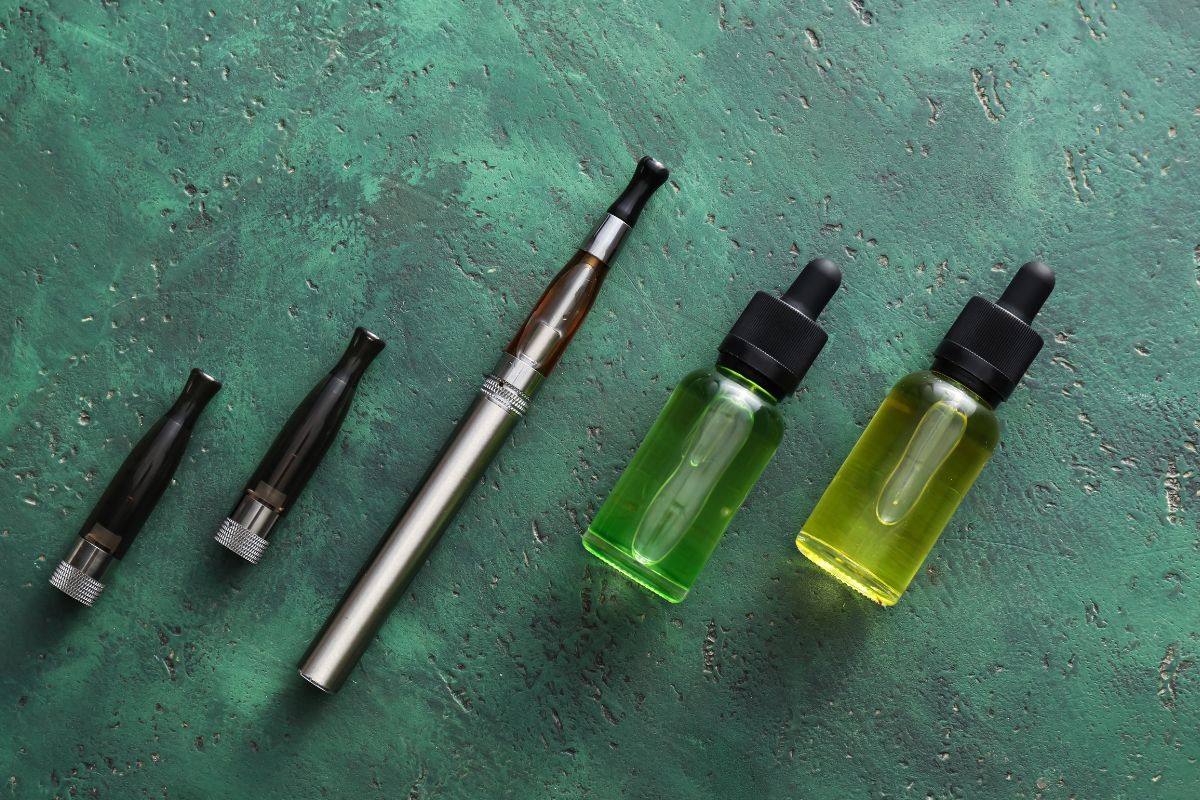
As you explore the emerging world of cannabis derivatives, the future of Delta-8 THC remains influenced by the balance between legislative progression and scientific research. These factors will drive the innovation and legality tied to this compound within the intricate cannabis regulatory landscape.
Legislative Changes
Your understanding of Delta-8 THC’s future is incomplete without considering the shifting sands of state laws and federal level regulations. While currently in a gray area, the legal landscape is expected to evolve as more states examine its status. The Agriculture Improvement Act of 2018, commonly referred to as the Farm Bill, legalized hemp-derived compounds, but didn’t specifically address Delta-8 THC, contributing to diverse state responses. On the horizon, there may be further legislative changes to clarify the ambiguity surrounding the legality of Delta-8 THC.
Scientific Developments
From a scientific perspective, your awareness of Delta-8 THC’s properties will likely expand due to increased research into its effects and potential medical applications. The scoping review highlights an urgency for more nationally representative studies to understand its impact on health. As innovation in extraction and synthesis techniques advances, expect a deeper dive into the nuanced differences between Delta-8 THC and other cannabinoids, informing both legislative frameworks and consumer safety.
Conclusion
Delta-8 THC has garnered increasing attention due to its subtle psychoactive effects and potential therapeutic benefits. Research indicates that it is a more stable compound compared to its analog Delta-9 THC, potentially offering a distinct user experience. Investigations into its efficacy for medical usage are ongoing, with some studies highlighting its pharmaceutical substitution possibilities.
When considering Delta-8 THC, it is crucial for you to be aware of its legal status, as it varies by jurisdiction. You should also be cautious of labeling and content discrepancies in commercially available products, ensuring that you source from reputable vendors to avoid unwanted effects.
Despite the promise held by Delta-8 THC in various domains, further scientific inquiry is necessary. Future research should aim to illuminate its long-term implications, optimal dosing, and full spectrum of effects. As such, you are encouraged to stay informed about new developments to make well-considered decisions regarding its use.
Remember, while Delta-8 THC appears to offer benefits, it should be approached with the same caution as any other cannabinoid or health supplement. Always consult with healthcare professionals, especially if you are considering it for therapeutic purposes.
Frequently Asked Questions
Navigating the complexities of cannabis can be challenging. This section aims to clarify your queries regarding Delta-8 THC.
Why is Delta-8 THC considered legal in some areas while Delta-9 THC is not?
Delta-8 THC is often deemed legal in certain areas because it is synthesized from CBD derived from hemp, which is federally legal under the 2018 Farm Bill, while Delta-9 THC typically comes from marijuana, which remains federally illegal. The legal status of Delta-8 varies by state, with some having explicit legislation against it.
What are the main differences between Delta-8 and Delta-9 THC?
The primary distinction lies in their chemical structure, with Delta-8 THC having a double bond on the 8th carbon chain and Delta-9 on the 9th. This difference affects how they interact with the body’s endocannabinoid system, with Delta-8 being less potent and producing milder psychoactive effects compared to Delta-9 THC.
In what forms can Delta-8 THC be consumed, and what are some common products?
Delta-8 THC is available in various forms, including vape cartridges, edibles, tinctures, and more. Common products encompass gummies, chocolates, and oils. The method of consumption affects the onset and duration of effects.
Can consuming Delta-8 THC provide any therapeutic benefits?
Some users report that Delta-8 THC offers them relaxation, euphoria, and possible pain relief, similar to Delta-9 THC, but with less intensity. Clinical research on its therapeutic benefits is still in the early stages.
How is Delta-8 THC synthesized or extracted from cannabis plants?
Delta-8 THC is generally produced through the chemical conversion of CBD, which is extracted from hemp. This involves a process of distillation and refinement that selectively isolates and concentrates the Delta-8 THC compound.
What are the potential risks or side effects of using Delta-8 THC?
The potential risks or side effects may include dry mouth, red eyes, short-term memory impairment, and in some cases, anxiety or paranoia. As it is a psychoactive compound, it can impair your ability to perform tasks that require full cognitive function.

